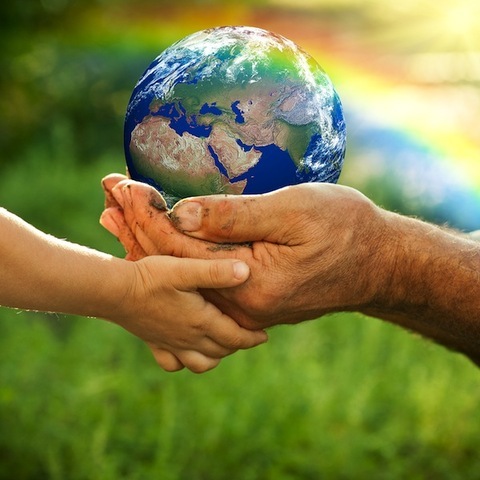20.1 The world has its limits
 All types of human activity consume resources. For example, the study work you are doing right now requires various resources, such as:
All types of human activity consume resources. For example, the study work you are doing right now requires various resources, such as:
- smart devices: ores, metals, oils, energy.
- paper: wood, water, energy, chemicals.
- the school environment: concrete, other building materials, energy.
- you, your classmates and your teacher: food, movement energy, clothes, etc.
We might not be able to avoid consuming resources, but we are able to control how much we consume. If we use resources as at a faster rate than new ones can be produced, we are consuming unsustainably.
Sustainable development is a term that describes a kind of human existence that moves forward while remaining environmentally sustainable. A suistainable society can continue for an extremely long time without harming either itself or its environment. In other words, a sustainably developed society meets its needs without taking away the ability of future generations to meet their own needs. At the same time, sustainable development seeks to maintain the planet's biodiversity, which is important for the well-being of all living organisms.
Compared with the rest of the world, Finland is much more sustainably developed than many other nations. Development indexes that measure social and cultural development show that Finland is among the best-developed nations on Earth. This means that Finland is a relatively equal and highly educated nation.